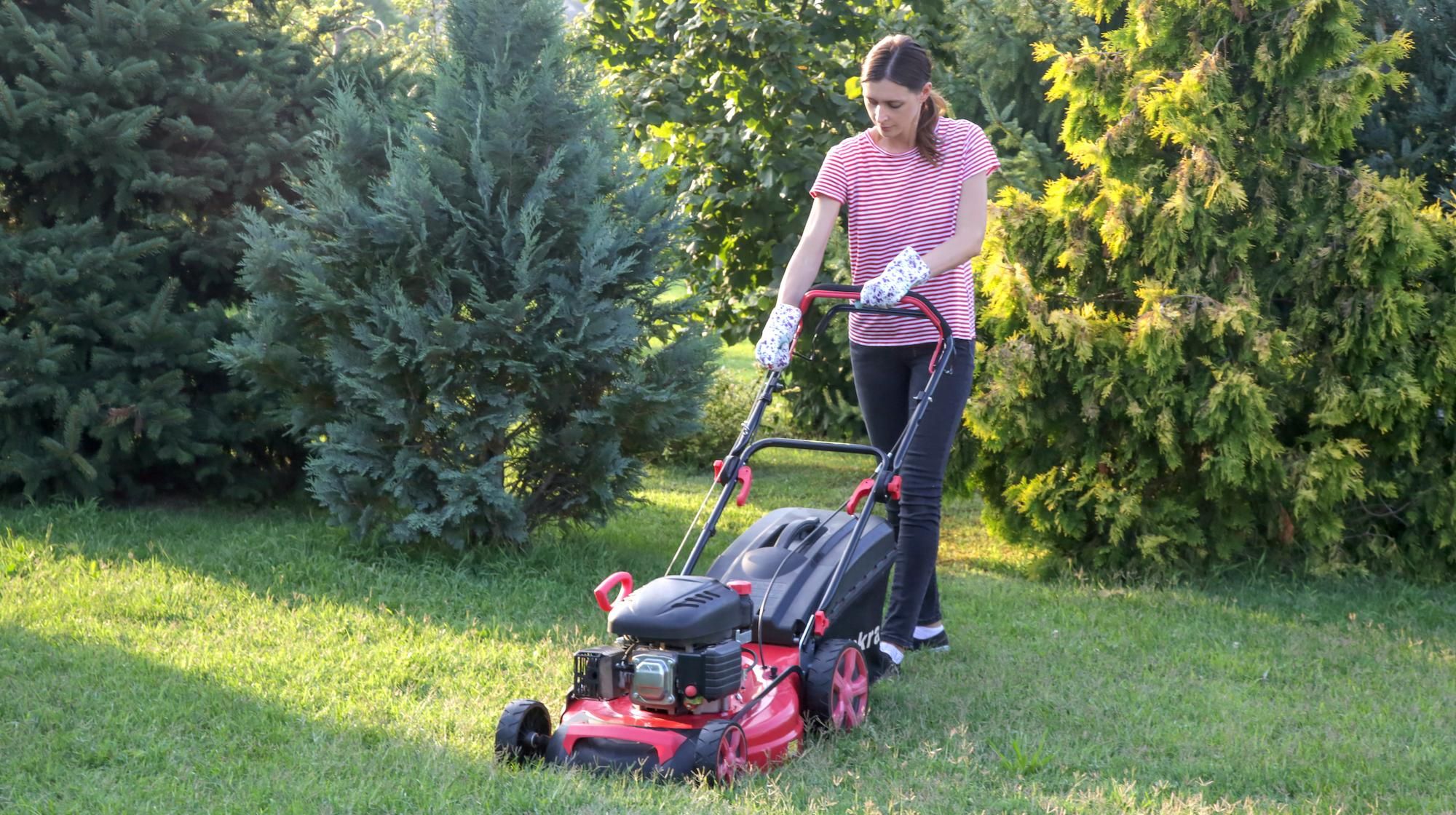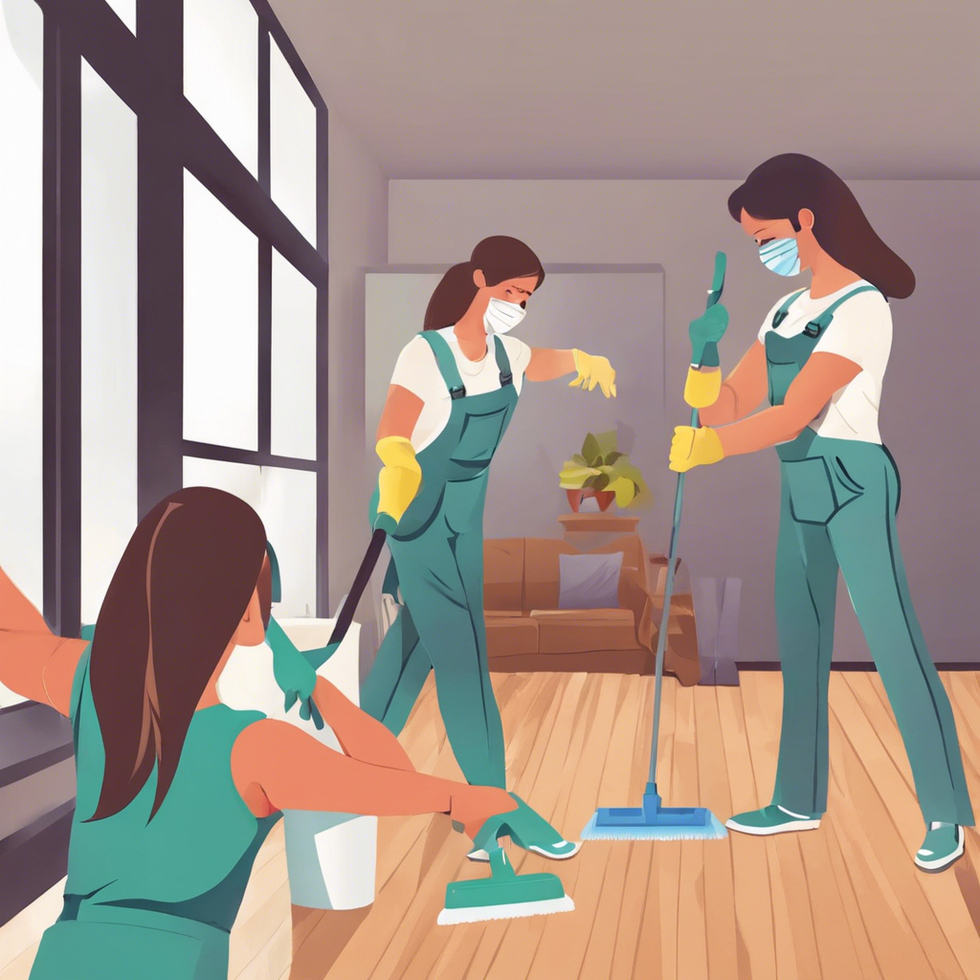.
In the fall, you have to decide when to stop mowing your lawn before winter arrives. Many factors determine when you should stop mowing, including the temperature, how much sunlight there’s been, and what type of grass you have growing in your yard.
According to Lawn Care Specialists, if you mow your grass when it’s too late in the season, you could kill off your grass or even let weeds take over. This article discusses all of the important factors that go into making this decision, so you know when to stop mowing your lawn before winter arrives without harming your grass or letting weeds take over!
The Best Time to Stop Mowing Your Lawn Before Winter
Grass that does not go dormant until the soil temperature reaches 45 degrees Fahrenheit needs to be lowered before it will go dormant. Warm-season grasses should be mowed once the air temperature gets below 60 degrees, and cool-season grasses should be mowed when the temperature falls below 50 degrees.
The easiest way to know when it's time to stop mowing is by looking at the leaves on your trees. The best Lawn Care Specialists can see the leaves on your trees or if they're starting to turn, it's a good idea for you not only to stop mowings but also fertilizing.
This will help ensure that you don't lose any of your lawn during the winter months. You should also make sure that you have a plan in place before winter arrives so you know what services are going to be needed.
For example, do you need someone who can clear snow from around the house? Or do you want someone to come out and plough the driveway once a week? Making these decisions ahead of time can make life much easier during the winter season.
8 Reasons for stopping
1. You're out of lawn mower gas
2. You don't want to take a chance on more than one snowstorm happening before you can get gas for your lawn mower again
3. The forecast says there is a better than 50% chance of getting at least one snowstorm this week
4. It's getting dark earlier and earlier, which means it's going to be difficult for you to see
5. If you have an electric lawn mower, the likelihood that it will die during the winter increases because colder weather makes it harder for batteries to hold a charge
6. If you have a battery-powered or manual push lawn mower, you'll need to do some research to find out how long the blades should last in cold temperatures
7. On average, blades will last two weeks with constant use in below-freezing temperatures
8. Once they start chattering and shaking when they come into contact with grass, they are nearing the end of their lifespan
The process of stopping
The first step in the process of stopping is determining when you should stop mowing your lawn. According to Lawn Care Specialists, you should stop mowing as soon as the grass starts to turn brown or go dormant. If you are not sure if it is time yet, use this helpful online tool.
The second step is figuring out how to care for your lawn once it has stopped being mowed. You can use a rake or leaf blower to remove dead leaves and pine needles before they become a problem for your garden and walkways. Grass clippings can be left on the lawn where they will break down into compost over time.
Just remember to bag them up if they start piling up because they will attract unwanted pests and rodents during the winter months. Once you have cleaned up all of the fallen leaves, collect any branches that might have fallen during the winter storms.
Make sure there is no rotting fruit lying around that might attract pests as well. Always remember to water trees every week so their roots do not dry out too much in these cold months.
Other things to consider
1. If the grass is in good shape, mow it for the last time about two weeks before the first expected frost date and let it grow taller. This will help insulate and protect the roots from cold weather.
2. Fertilize your lawn with a fall lawn fertilizer about one week before you stop mowing, as this will provide some additional nutrients for your lawn as well as act as a weed preventer.
3. Finally, make sure that you have plenty of water available for the plants over winter so that they don't dry out.




 Photo by
Photo by  person holding black smartphone on white textile
Photo by
person holding black smartphone on white textile
Photo by  StableDiffusion
StableDiffusion
 Photo by
Photo by  Photo by
Photo by 
 roommate as a therapist
StableDiffusion
roommate as a therapist
StableDiffusion
 woman in white shirt eating pizza
Photo by
woman in white shirt eating pizza
Photo by  person holding remote pointing at TV
Photo by
person holding remote pointing at TV
Photo by  person holding assorted clothes in wooden hanger
Photo by
person holding assorted clothes in wooden hanger
Photo by  a couple of
a couple of  friends cleaning apartment
StableDiffusion
friends cleaning apartment
StableDiffusion
 man driving car during golden hour
Photo by
man driving car during golden hour
Photo by  bacon strips and melted cheese topped fries on oval white and blue platter with gray stainless steel forks
Photo by
bacon strips and melted cheese topped fries on oval white and blue platter with gray stainless steel forks
Photo by  selective focus photography of eyeshadow palette
Photo by
selective focus photography of eyeshadow palette
Photo by  brown wooden framed white padded chair in between green indoor leaf plants inside bedroom
Photo by
brown wooden framed white padded chair in between green indoor leaf plants inside bedroom
Photo by  women forming
women forming  taking
taking  man in red polo shirt pouring wine on clear wine glass
Photo by
man in red polo shirt pouring wine on clear wine glass
Photo by  woman in black jacket standing on road during daytime
Photo by
woman in black jacket standing on road during daytime
Photo by 
 StableDiffusion
StableDiffusion
 StableDiffusion
StableDiffusion
 student thinking i shouldnt have procrastinated all semester
StableDiffusion
student thinking i shouldnt have procrastinated all semester
StableDiffusion
 Photo by
Photo by  Photo by
Photo by  Photo by
Photo by  StableDiffusion
StableDiffusion
 StableDiffusion
StableDiffusion
 Photo by
Photo by  Photo by
Photo by 


 Lumiere figure at the Disney Store at the Ala Moana Shoppi… | Flickr
Lumiere figure at the Disney Store at the Ala Moana Shoppi… | Flickr
















